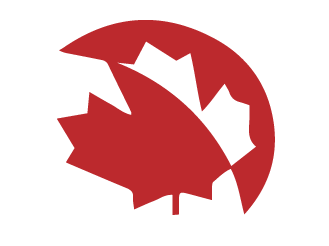November 8, 2023, Toronto, Ontario – Francophone immigration plays an important role in the development and prosperity of Francophone communities outside Quebec. Canada therefore intends to increase its efforts to welcome more Francophone immigrants in these communities.
Today, the Honourable Marc Miller, Minister of Immigration, Refugees and Citizenship, announced nearly $85,000 in financial assistance for the Université de l’Ontario français, which will support the implementation of the Observatoire en immigration francophone au Canada. Minister Miller made this announcement during the observatory’s opening ceremony, at the Centre francophone du Grand Toronto.
The funding will enable the creation of an oversight committee composed of university and community representatives that will support the work of key players in the Francophone immigration sector. Their goal will be to define and validate the observatory’s mission, objectives and governance model. The project will take stock of the various groups’ concerns related to Francophone immigration research.
This increased knowledge and understanding of the realities of Francophone immigration will enable the Government of Canada to better direct its efforts in the area of Francophone immigration. Part of the funding will be dedicated to developing a survey on Francophone immigration research needs in Canada, which will be conducted with the community and academia. The survey results will guide the observatory’s research plan and help meet the research needs and priorities of the key players in Francophone immigration.
French-speaking newcomers contribute to our country’s cultural and linguistic diversity, while helping to strengthen the economy of the communities where they settle. Canada is continuing its efforts to promote Francophone immigration outside Quebec, a key priority for the coming years.
Quotes
“Francophone immigration plays a key role in supporting the vitality and growth of Francophone communities outside Quebec. The Observatoire en immigration francophone au Canada will contribute to Canada’s efforts to promote the reception and integration of Francophone immigrants. The observatory is a great example of community partners’ contribution to the achievement of our ambitious objectives for Francophone immigration to strengthen Francophone minority communities across the country.”
– The Honourable Marc Miller, Minister of Immigration, Refugees and Citizenship
“The Observatoire en immigration francophone will play a unifying role in a crucial area for the future of the Francophonie in Ontario and Canada. It will meet an important need for research on the dynamics of migration in the Canadian Francophonie. We would like to thank Immigration, Refugees and Citizenship Canada for supporting this initiative, led from the beginning by the Université de l’Ontario français, in collaboration with Toronto Metropolitan University’s Research Chair in Migration and Integration and many community partners.”
– Pierre Ouellette, President, Université de l’Ontario français
Quick facts
- The research carried out by the Observatoire en immigration francophone will make it possible to remove barriers to Francophone immigration and will help increase the number of French-speaking newcomers in Francophone minority communities.
- The Francophone immigration targets were announced on November 1 under the 2024–2026 Immigration Levels Plan. They were set at 6% for 2024, 7% for 2025 and 8% for 2026. The approach used to determine the targets is evidence-based and takes into account partners’ perspectives, including those of Francophone community stakeholders.
- On April 26, 2023, the Government of Canada introduced the Action Plan for Official Languages 2023–2028: Protection-Promotion-Collaboration, which includes a historic federal investment in official languages. Pillar 1, titled Francophone Immigration: Towards the Re-establishment of the Demographic Weight of Francophones, is entirely dedicated to immigration. Over $137 million in total will be invested in various initiatives in support of the entire immigration continuum.
- One of the action plan’s key measures is the adoption of a Francophone immigration policy with objectives, targets and indicators under the modernized Official Languages Act. IRCC is actively working to develop the policy and recently held consultations on it with key players, including the provincial and territorial governments and Francophone community stakeholders. The Francophone immigration policy is scheduled to be launched in the near future.
Source: Canada.ca

